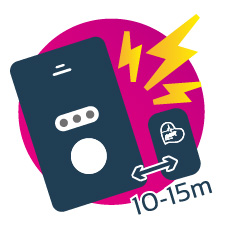
Wandering, difficulty in recognizing roads, loss of sense of direction and even getting lost are common symptoms of cognitive impairment, but it does not mean that they can only be “trapped” at home. In fact, apart from preventive measures at home, there are also related services in the community to help patients and their families. For example, some organizations have launched “one-stop” support services for the elderly, whereby the elderly only need to bring along a simple device or a mobile phone with location tracking function to provide 24-hour support services for the elderly and their family members, including telephone condolences, reminders for follow-up appointments, emergency support such as ambulance summoning, contacting family members, and searching for the host's location. Some mobile phones can also be equipped with distance sensors, which will alert the elderly when the mobile phone has moved away from the sensor, ensuring that the elderly and their family members are in close contact with each other.

